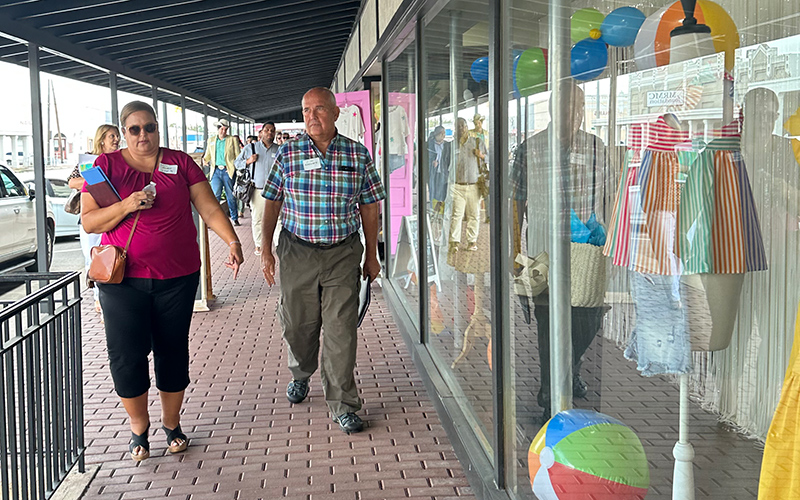On This Page
Small businesses make up the heart of their communities – small business owners bring in jobs and revenue, but also often serve as leaders within the community. Yet small businesses in rural areas face challenges in accessing the resources, workforce, and customer base they need to thrive. Places have the capacity to facilitate small business growth through providing support, incentivizing development, and reducing barriers.
Policy
Common policy solutions include:
Zoning for Small Business
Zoning should favor pedestrian-oriented and mixed-size buildings, with a focus on historic preservation. Research has shown that varied building stock provides the best environment for local businesses, with a higher number of startups per square foot.
Consider adopting form-based codes, which allow for greater variety in development while maintaining the unique look and feel of the community.
Facilitate Adaptive Reuse of Historic Buildings
Historic buildings represent the community’s heritage, but when left vacant or in disrepair they can drive away business. Incentivizing maintenance and repair or even acquiring the property to sell to a small business encourages productive use of the space.
One strategy is to use a vacant building registry, where properties without a business or residence inside must register with the city, pay a small fee, and commit to addressing building issues. This policy catalyzes changes in ownership.

Streamline and Clarify Permitting and Regulations
Over-complicated permitting processes can discourage would-be business owners. Creating resources that make it clear what permits or fees are required for different uses helps business owners navigate the necessary steps to start their business.
Places can also designate certain land uses or projects to receive priority approvals and expedited permitting, making it easier and quicker to create these projects at no cost to the local jurisdiction.
Increase Access to Capital
Places have access to various funding sources that can help businesses kickstart or maintain their work. Chapter 380 and 381 of the Local Government Code allows Cities and Counties, respectively, to provide incentives encouraging developers to build in their jurisdictions.
Texas Enterprise Zones provide tax benefits per job created in economically distressed areas. Creating a Tax Increment Reinvestment Zone, or TIRZ, can provide necessary funding for a designated area to invest in infrastructure, facade improvements, or other public improvements.
For more information, see Houston-Galveston Area Council’s Economic Development Toolbox.
Partnerships
Small cities and towns can benefit from the resources, expertise, and energy that local partners can bring. External support expands the capacity of local government to complete larger projects quicker, while simultaneously making it so that government can support small business.
Business Improvement Districts, or BIDs, are non-profit organizations that collect fees or tax revenue to manage revitalization projects and support businesses in the area. BIDs in Texas often use TIRZ funding to support their work.
Other partnerships could include small business incubator programs with local universities, inter-local agreements with governments in the region to share use of public services or marketing, or work with arts organizations to facilitate reuse of space.
Local governments can also encourage development of a chamber of commerce, helping local businesses to access greater visibility and financial resources.

